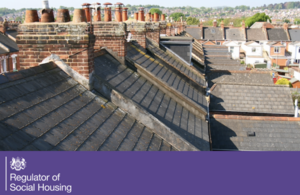Statistical Data Return details social housing rent levels
The second release of the Statistical Data Return 2019 details social housing rent levels in England.

The second release of the Statistical Data Return 2018-2019 published today (26 September 2019) by the Regulator of Social Housing shows a reduction in the average rent for general needs social housing in England and a significant difference in rent levels across regions.
Private registered providers of social housing with 1,000 or more units / bedspaces have reported an average net rent of £95.12 per week for the general needs rental stock (excluding Affordable Rent and intermediate rent) properties that they own. This is a reduction of 1.3% since 2018; however, increases in service charges have meant gross rents have seen a lesser reduction.
The second in a series of three SDR releases details rent levels for owned low cost rental units as at 31 March 2019 and changes in rent levels between 2012 and 2019.
Other findings include:
-
London, the South East and the East of England have the highest net rents on average (ranging from £98.99 to £121.85 per week) and the North East has the lowest average weekly net rent of £77.89
-
Supported housing net rents have reduced by 0.3% since 2018 – the key driver behind the lower level of decrease appears to be units that have an absolute exception from the 1% per annum rent reduction. After controlling for these units a 1.3% reduction can be seen.
-
Affordable Rent rents for general needs units have reduced by 0.7% since 2018, with an average gross rent of £126.94 per week in 2019.
-
Average service charges in England for supported housing increased by 5% between 2018 and 2019.
Fiona MacGregor, Chief Executive of RSH, said:
The data on stock ownership, location, development and transfers collected through our Statistical Data Return helps us ensure a risk-based and proportionate approach to regulation. It also informs our risk analysis and sector research. The regulator systematically reviews the rents data in the SDR and we will engage with providers where necessary. We will set out some of our wider findings as a result of that engagement in due course.
This year’s SDR results are being made available in three releases phased over the next few weeks. The changes follow a call for user views between May and July 2019 about proposals to make the publication of the data more timely and more accessible.
The set of National Statistics releases includes a range of briefing notes, look-up tools and accompanying documents.
The first release, published on 19 September, focused on the social housing stock at 31 March 2019, and examined changes to stock owned in the sector since 2012. Both releases are now available on the RSH website.
The final release providing all SDR data will be published on 10 October 2019 and will include look-up tools providing easy access to the SDR data at a PRP and local authority level.
Further information
For press office contact details, see our Media enquiries page. For general queries, please email enquiries@rsh.gov.uk or call 0300 124 5225.
Notes to editors
-
The Regulator’s Statistical Data Returns are available on the RSH website.
-
A total of 1,409 providers completed this year’s Return – there was an overall response rate of 96% for the 2018-19 SDR, while 100% of large registered providers who own 1,000 or more units/ bedspaces (including Affordable Rent units) completed the return.
-
The response to the Call for user views on the SDR was published in August 2019.
-
Figures do not include non-social housing units built by unregistered entities within PRP groups, which are outside the scope of the SDR.
-
RSH promotes a viable, efficient and well-governed social housing sector able to deliver homes that meet a range of needs. It does this by undertaking robust economic regulation focusing on governance, financial viability and value for money that maintains lender confidence and protects the taxpayer. It also sets consumer standards and may take action if these standards are breached and there is a significant risk of serious detriment to tenants or potential tenants. For more information visit the RSH website.